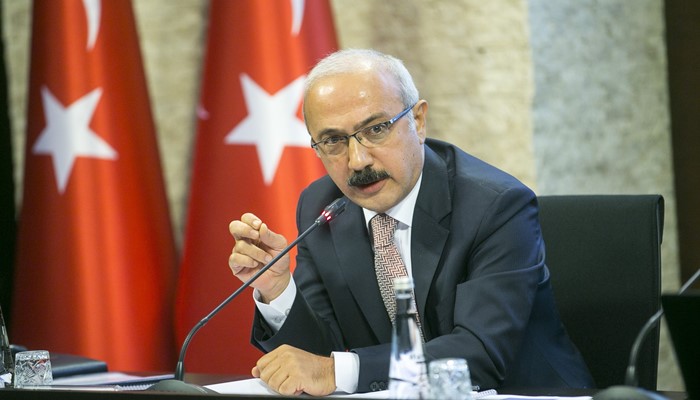As the ruling Justice and Development Party (AKP) announces that emergency rule will be extended in Turkey for another three months, Turkish Minister of Development Lütfi Elvan has said it will be enforced only against the Gülen movement, CNN Türk reported on Saturday.
“The unity of our county is above everything else. We do not have any other country to go to. We will together save our country and nation,” Elvan said in İzmir.
AKP parliamentary group deputy chairperson and Kayseri deputy Mustafa Elitaş said on Friday that emergency rule would be extended in Turkey for another three months.
United Nations High Commissioner for Human Rights Zeid Ra’ad al-Hussein in September expressed concern about the deterioration of human rights in Turkey and urged the Turkish government not to renew a state of emergency that was declared immediately after a botched coup attempt on July 15, 2016.
People in Turkey accused of links to terrorism or to the 2016 military coup attempt have been tortured in police custody, while others have been abducted, amidst growing evidence of detention abuses, Human Rights Watch (HRW) said in a report released on Thursday.
According to the CNN Türk, the extension of emergency rule will first be discussed on Oct. 16 at a meeting of the National Security Council (MGK) chaired by President Recep Tayyip Erdoğan at the presidential palace in Ankara. This will be followed by a recommendation that will be sent to Parliament and a motion from the government for its continuance.
“There is a possibility that the motion to extend the state of emergency could be debated on Tuesday [Oct. 17] or Wednesday [Oct. 18],” Elitaş told the state-run Anadolu Agency.
According to the Turkish Constitution, a state of emergency can be declared for a maximum period of six months.
The European Union has been calling on Turkey to end the state of emergency since last fall. The main opposition Republican People’s Party (CHP) and the Peoples’ Democratic Party (HDP) strongly oppose the state of emergency.
Under emergency rule, the government has pressed ahead with many controversial decrees that have the force of the law and are not required to be approved by Parliament. In line with these decrees, close to 150,000 people including academics, politicians, teachers, doctors, officials, businessmen, artists and journalists, have been purged from state bodies on coup charges.
Following a failed coup attempt last year, the ruling AKP government declared emergency rule in Turkey, on July 20, 2016, which became effective with a government decree issued on July 23, 2016. It was extended three times for another three months on Oct. 19, Jan.19, April 19 and July 20.
The ruling AKP and President Erdoğan targeted individuals affiliated with Gülen movement, which is accused of mounting the coup attempt last year, while the movement strongly denied any involvement.
Turkey’s Justice Ministry announced on July 13 that 50,510 people have been arrested and 169,013 have been the subject of legal proceedings on coup charges since the failed coup.

